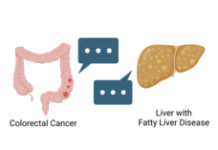Since the first reports recognising tumour mutational burden (TMB) as a predictor of immune checkpoint blockade response for patients with melanoma and non-small cell lung cancer (NSCLC), it has become clear that TMB as a numeric value or binarised feature can only partially predict response. The findings from a large genomic analysis suggest that a high persistent TMB (pTMB), a biologically relevant measure of tumour foreignness within the overall TMB, represents an ‘uneditable’ target set for adaptive immune responses and may function as an intrinsic driver of sustained immunologic tumour control that cannot be readily bypassed by neoantigen loss via chromosomal deletions during cancer evolution. The findings are published by Dr. Valsamo Anagnostou of The Sidney Kimmel Comprehensive Cancer Center and The Bloomberg-Kimmel Institute for Cancer Immunotherapy, Johns Hopkins University School of Medicine in Baltimore, MD, US and colleagues on 26 January 2023 in the Nature Medicine.
The authors wrote in the background that the current working hypothesis for tumour-intrinsic features that determine the magnitude of antitumour immune responses relies on the assumption that each mutation contributes equally to a composite measure of tumour foreignness, reflected in the number of sequence alterations per coding DNA sequence or TMB. Except mismatch repair-deficient tumours, TMB has failed to consistently demonstrate clinical utility in predicting responses to cancer immunotherapy. Efforts to separate subsets of alterations that may predominantly drive an effective antitumour immune response have yet to reveal an universal genomic predictive biomarker.
The study team has previously shown that heterozygous mutations and neoantigens can be selectively eliminated through chromosomal deletions and loss of heterozygosity conferring acquired resistance to immune checkpoint blockade. They have discovered that a higher number of sequence alterations contained in single-copy regions of the genome differentiate responding from non-responding tumours in the context of immunotherapy. These findings suggested that mutations and associated neoantigens contained in regions of the genome present in a single copy per cancer cell are less likely to be eliminated by chromosomal loss under the selective pressure of therapy and therefore may mediate sustained neoantigen-driven immune responses and long-term clinical benefit.
To extend these findings beyond single-copy genomic regions, the study team hypothesized that tumours with a higher frequency of sequence alterations in either haploid regions or multiple copies would have a fitness disadvantage in the context of immunotherapy, as these alterations would continuously render them visible to the immune system, resulting in sustained immunologic tumour control. Deletions of single-copy alleles through chromosomal loss are typically not tolerated unless they are relatively small homozygous deletions, as larger chromosomal deletions could contain essential genes in linkage with the mutation and thus be lethal. Similarly, mutation loss by chromosomal deletions is evolutionarily unlikely when mutations are contained in multiple copies. Therefore, these ‘persistent’ mutations (pTMB) may function as an intrinsic driver of tumour rejection in the tumour microenvironment.
The study team evaluated mutations in regions of the genome that are unlikely to undergo loss in a pan-cancer analysis across 31 tumour types (n = 9,242) and 8 immunotherapy-treated cohorts of patients with NSCLC, melanoma, mesothelioma, and head and neck cancer (n = 524). They discovered that mutations in single-copy regions and those present in multiple copies per cell constitute a pTMB which is linked with response to immune checkpoint blockade.
Persistent mutations were retained in the context of tumour evolution under selective pressure of immunotherapy and tumorus with a high pTMB content were characterised by a more inflamed tumour microenvironment. The authors concluded that their findings suggest that mutations located in single-copy regions or those present in multiple copies in the cancer genome are unlikely to be lost under the selective pressure of immunotherapy due to the intrinsic fitness cost to the tumour, and therefore may serve as a key driver of sustained immunologic tumour control.
This work was supported in part by grants from the US National Institutes of Health, the Bloomberg-Kimmel Institute for Cancer Immunotherapy, the Johns Hopkins SKCCC, the Department of Defense Congressionally Directed Medical Research Programs, the ECOG-ACRIN Thoracic Malignancies Integrated Translational Science Center, the V Foundation and the LUNGevity Foundation. The results are in part based upon data generated by The Cancer Genome Atlas Research Network. This work was supported by the US National Human Genome Research Institute Large Scale Sequencing Program grant.
Reference
Niknafs N, Balan A, Cherry C, et al. Persistent mutation burden drives sustained anti-tumor immune responses. Nature Medicine; Published online 26 January 2023. DOI: https://doi.org/10.1038/s41591-022-02163-w







